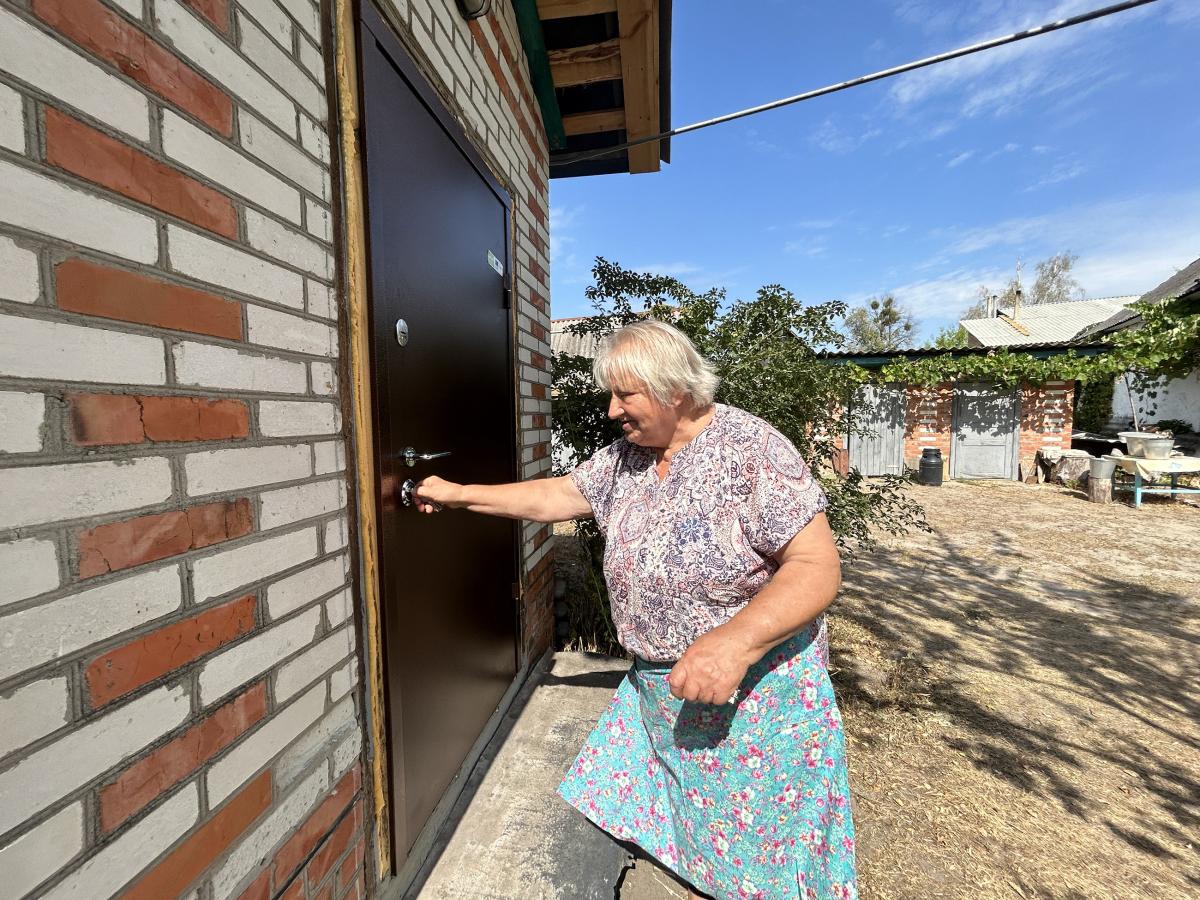Russian ground and air strikes have left a trail of destruction across Ukraine, damaging or destroying hundreds of thousands of homes. The once heartbreaking sight of people digging through rubble has tragically become commonplace here. Many people go to bed now not sure whether their walls will still be standing the next morning.
In this grim reality, some are luckier than others. Although their homes miraculously survived the war, they bear visible scars – roofs pierced by shrapnel, walls marked with holes and cracks, and only the outline of windows and doors left in the rubble. As the harsh Ukrainian winter approaches, their owners face a major challenge: How can they protect themselves and their damaged homes from the bitter cold and its associated dangers?
In this huge race against the cold, the European Union is on the ground in Ukraine and is providing important assistance to repair war-damaged houses. Over the last two and a half years, the EU and its humanitarian partners, including international NGOs Acted, the Danish Refugee Council and People in Need, have helped rebuild more than 80,000 houses in Ukraine.
Behind the statistics about windows replaced, roofs repaired or walls repaired lies a world of difference: families can stay and don't have to look for accommodation, older people can spend the coming winter in warmth and comfort, entire streets are still full of children's laughter and neighborly chatter on Sunday mornings .
“One bomb fell on the outskirts of the village and the second landed right here.” says Paraskoviia. At the start of the all-out war, her village in the Sumy region was at the epicenter of the fighting. The consequences were tragic.
“The house was badly damaged. Windows, doors and roof were damaged. Everything was broken, completely destroyed.” recalls Paraskoviia. The old front door that was ripped out by the explosion still stands next to her house.
Last winter, Paraskoviia struggled with patched windows and a leaky roof. This year, thanks to humanitarian aid from the EU and people in need, her roof has been repaired and she has a new front door, promising a warmer season.
“To be honest, I didn’t expect this help. I'm very grateful, very happy that they helped. It is very important for me and a great help for the people of Ukraine. Thank you, Europeans, we all thank you.” Paraskoviia says with tears in her eyes.
Svitlana's home in the Chernihiv region, where she was born and raised, miraculously survived a month of active fighting in March 2022 as the Russian army attempted to take control of the region.
By this time the village had become a battlefield, with trenches running dangerously close to Svitlana's home. She and her husband keep photos in the family archives that capture the condition of their home after a month of fierce fighting nearby.
Today, splinter marks on the walls and the remains of a destroyed barn are reminders of the war. The house itself has a new roof and new windows thanks to the joint efforts of EU Humanitarian Aid and the Danish Refugee Council (DRC).
In the first weeks of the war, this cellar became a refuge for Kateryna and her family. One night, as they sought shelter from relentless shelling in the cold basement, their house was hit by a blast from a nearby bomb.
The house withstood the fire, but was badly damaged. One of the projectiles landed a few feet away and miraculously didn't explode. Today it is covered in raspberry bushes and serves as a daily reminder of what this family has been through.
With a new roof, windows and doors installed by EU Humanitarian Aid and Acted, Kateryna is ready for winter. “The roof is no longer leaking and the new doors and windows are much better. We expect this winter to be easier,” she says.
In response to Russia's full-scale invasion, the European Union is continuing its extensive humanitarian efforts in Ukraine, including repairing homes damaged by the war. With financial support from the European Union, over 80,000 houses were repaired, restoring decent living conditions for more than 200,000 people. As winter approaches, these efforts become more important.
